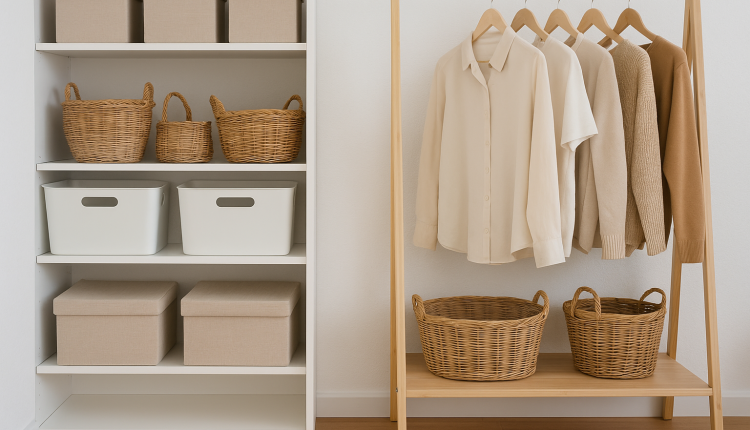The Psychology of an Organized Home: Why Decluttering Transforms More Than Just Your Space
In today’s fast-paced world, maintaining an organized home often seems like an elusive goal—an ideal presented in pristine magazine spreads or lifestyle influencer feeds. Yet, the act of decluttering and organizing is not just about aesthetic appeal. A clean, well-organized home directly influences your mental clarity, emotional well-being, productivity, and even your relationships. The connection between the state of your physical environment and your psychological health is deeper than many realize, and understanding this relationship may be the key to lasting transformation.
The Hidden Stress of Clutter
Clutter is more than just a visual inconvenience. Studies in environmental psychology have shown that disorganized spaces can significantly increase levels of cortisol, the stress hormone, particularly in women. When every surface is buried under paperwork, clothing, or miscellaneous household items, the brain perceives the environment as unfinished work. This constant sensory overload can lead to anxiety, fatigue, and a sense of being out of control.
When you walk into a messy room, your brain is forced to process each item and its placement (or lack thereof). This drains your cognitive resources and reduces your ability to focus. By contrast, an organized space supports cognitive clarity. It’s no coincidence that many people find it easier to think, create, or simply breathe deeply in clean, open areas.
Decision Fatigue and Emotional Drain
We make thousands of small decisions every day—what to wear, what to eat, what emails to respond to. An unorganized home exacerbates decision fatigue. When your closet is crammed with clothing or your kitchen is overflowing with utensils and expired pantry items, every choice becomes more complicated and taxing.
This added strain can leave you feeling overwhelmed and emotionally drained. Simplifying your environment by eliminating unnecessary items and organizing what remains can free your mind and lighten your emotional load. It’s not about minimalism for the sake of aesthetics—it’s about reclaiming your mental bandwidth.
Organization as Self-Care
Organizing your home is a powerful form of self-care. It signals to your brain that your environment is safe, manageable, and under your control. This feeling of control has been shown to decrease symptoms of anxiety and depression, increase satisfaction in daily life, and improve sleep.
Moreover, engaging in the act of organizing is therapeutic in itself. Sorting through items, making intentional choices, and creating a place for everything helps you reconnect with your values and goals. It can even become a mindfulness practice, offering a sense of purpose and accomplishment.
Small Changes, Big Impact
You don’t have to overhaul your entire home overnight. In fact, the most sustainable transformations happen gradually. Start with one drawer, one shelf, or one corner. Ask yourself: Does this item serve a purpose or bring me joy? If not, thank it for its service and let it go.
Here are a few practical steps to ease into the process:
- Adopt the “One In, One Out” Rule: For every new item you bring into your home, remove an old one.
- Use Zones: Organize items by function and store them in specific “zones.” For example, create a coffee station, a reading nook, or a tech drawer.
- Visibility Matters: Use transparent containers or labels so you can easily find what you need.
- Tidy Daily: Dedicate just 10 minutes a day to tidying up—this small habit prevents larger messes from accumulating.
The Ripple Effect on Relationships
Clutter doesn’t just impact the individual—it also affects relationships within the household. Disorganization can be a source of tension among partners or family members, especially when shared spaces become battlegrounds. Conversely, a well-organized home fosters collaboration, reduces friction, and sets a tone of respect and cooperation.
When everyone knows where things belong, it becomes easier to share responsibilities and maintain the order. Children, too, benefit from organized environments—they thrive on structure and clear expectations. By modeling organization, parents teach their children valuable life skills and a sense of ownership over their surroundings.
The Long-Term Benefits
Beyond the immediate sense of peace and satisfaction, maintaining an organized home has long-term benefits. It can save you money (by avoiding duplicate purchases), reduce cleaning time, and make home maintenance far easier. It can even increase your home’s resale value should you decide to move.
But perhaps the most meaningful benefit is the alignment between your physical space and your inner world. A tidy, intentional home reflects a life of clarity, purpose, and care. It becomes a sanctuary—a place that recharges you rather than depletes you.
Final Thoughts
The power of an organized home goes far beyond appearances. It’s not just about bins, labels, and minimalist decor. It’s about creating a space that supports who you are and who you want to become. Whether you’re a busy parent, a work-from-home professional, or someone seeking more peace in your day-to-day life, organization is a tool that can unlock greater mental clarity, emotional balance, and overall well-being.
So the next time you feel stuck or overwhelmed, look around. Perhaps the first step toward a better day begins with a single drawer, a clear surface, or the decision to let go of what no longer serves you.

